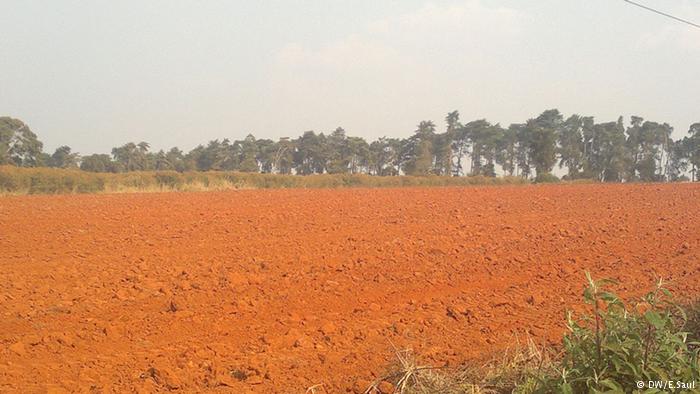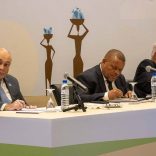Mozambique: Automated forestry licensing begins
Land: Mozambican organisations break off dialogue on agricultural megaproject

DW / ProSavana's Lichinga test field
Civil society organisations under the umbrella “No to ProSavana” campaign have announced that they have broken off consultations with the Mozambican government over the controversial agrarian program in the north of the country, calling the process unclear and loaded with illegitimacy.
In a communiqué published in the Mozambican press on Tuesday (08.11), the organisations demand that all the documentation related to the initiative be made public and copies distributed to local communities
“There will be no community consultations or regional meetings or any conference based on simplified documents. We will not legitimise an obscure and illegitimate process where what is intended is disguised as simple intentions,” the Maputo statement reads.
Governments of Mozambique, Brazil and Japan criticised
The “No to ProSavana” campaign, which has the support of “83 organisations in the world”, accuses the governments of Mozambique, Brazil and Japan of pursuing a strategy of marginalising and seeking to divide community organisations representing the areas covered by the triangular program in the dialogue reformulating the ProSavana master plan.
 “Given the irregularity, secrecy, illegitimacy and obscurantism that has characterised the establishment of the dialogue mechanism, the campaign published two communiqués denouncing these aspects,” the statement says.
“Given the irregularity, secrecy, illegitimacy and obscurantism that has characterised the establishment of the dialogue mechanism, the campaign published two communiqués denouncing these aspects,” the statement says.
Actions violate human rights
All these actions, the campaign states, clearly violate the human rights enshrined in Mozambican laws and international norms. “Forcing the implementation of ProSavana would violate the right of communities to prior information and free consent,” reads the text.
The note accuses the three governments of wanting to implement the ProSavana master plan without it being approved, and accuses those responsible for the initiative of having selected for the redesign of the master plan an entity that was previously in favour of the program, skewing the process.

Marked by controversy since its inception, ProSavana was conceived by the governments of Mozambique, Brazil and Japan and has generated fears of land usurpation in the communities living in the area being considered for inclusion in the program. Residents of the Nacala corridor have protested, and several non-governmental organisations have questioned the success of a similar experiment in Brazil.
The ProSavana initiative covers 19 districts in Nampula, Zambézia and Niassa provinces and a total of 800,000 families. It aims to improve the living conditions of the Nacala Corridor population by modernising agriculture and increasing productivity by adopting market-oriented agricultural development models.
The ProSavana master plan anticipates the total value of production increasing by 3.2 times by 2030.













Leave a Reply
Be the First to Comment!
You must be logged in to post a comment.
You must be logged in to post a comment.